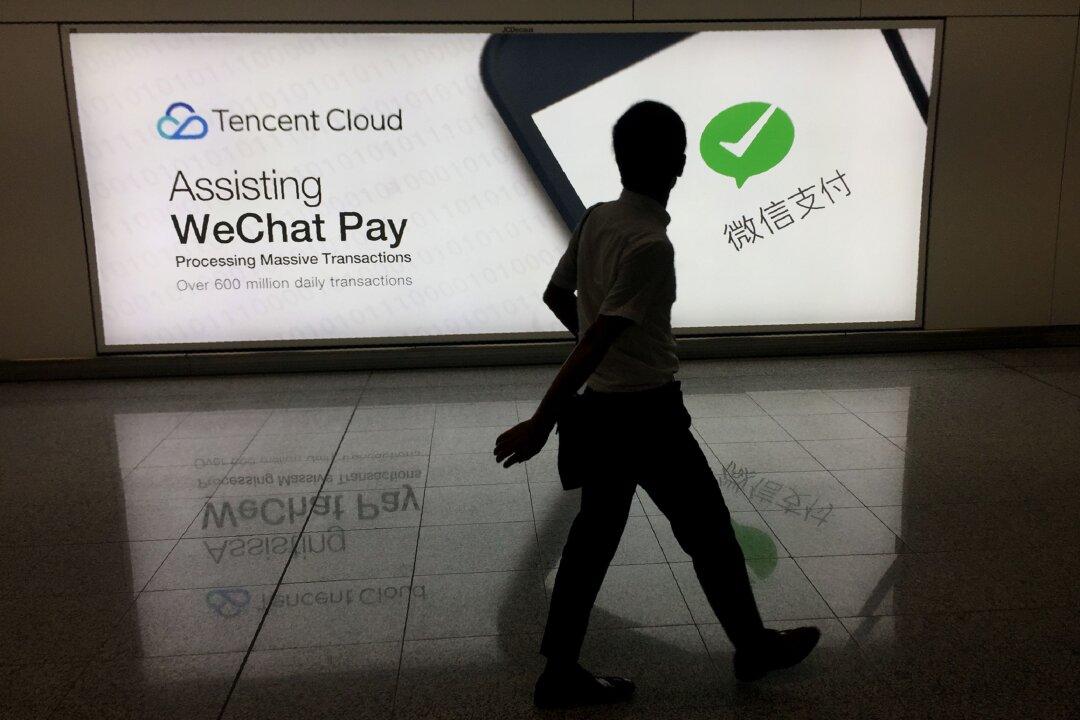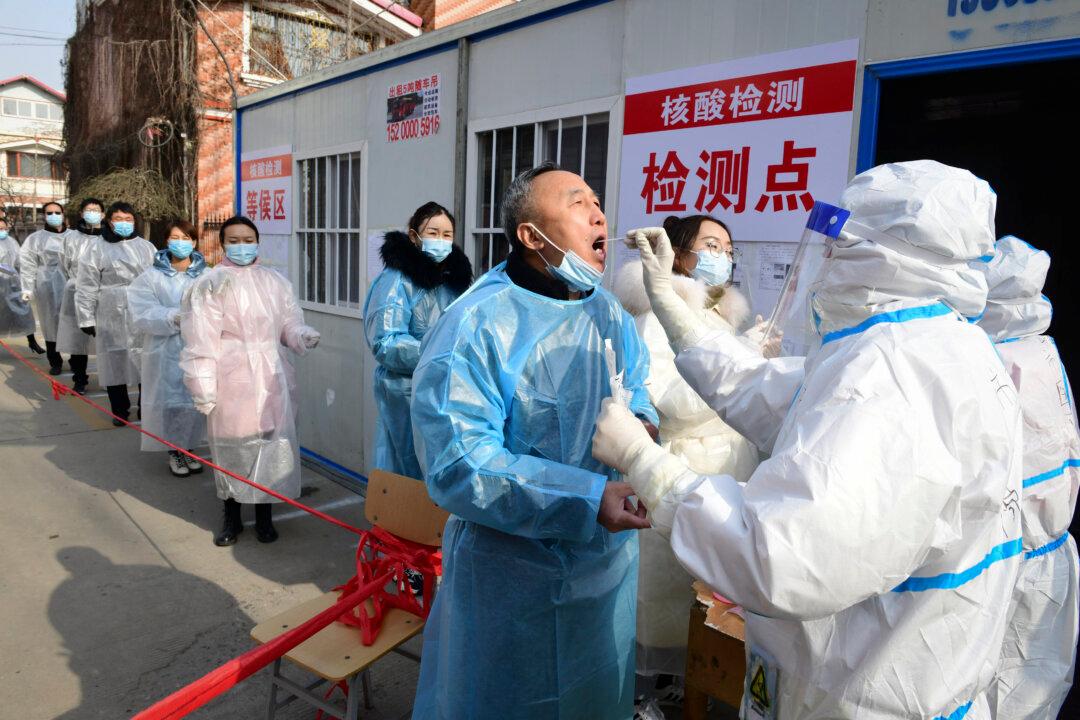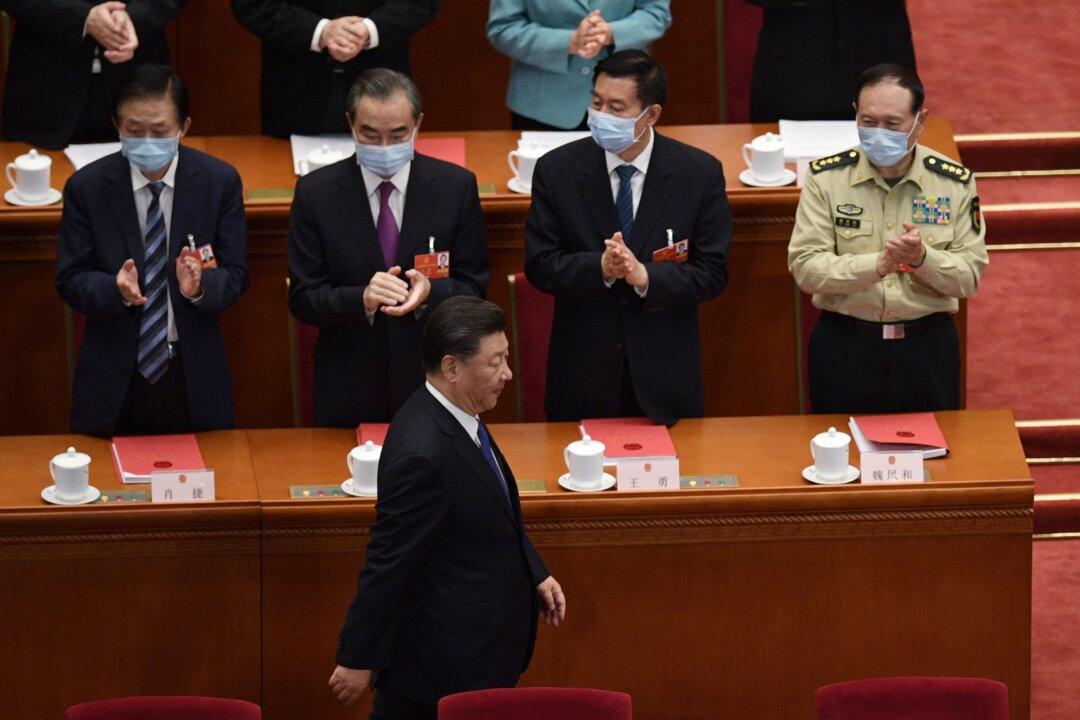More than 7,700 employees at Chinese tech giant Tencent are members of a Communist Party organization embedded in the company, according to an internal name list obtained by The Epoch Times.
Companies operating in China are required by law to set up Communist Party units within their offices to ensure that their business activities and employees adhere to the Party’s policies.
The Party organization’s leaders are all top executives at the company, which has set up smaller Party subunits within many of its departments, according to the set of documents The Epoch Times obtained from a trusted source.
The list is incomplete , so it’s unclear exactly how many Party members or committee members are among the company’s roughly 54,600 employees.
The large scale of Tencent’s Party committee reveals the company’s close ties to the regime.
Tencent Toes the Party Line
Tencent was founded in the southern Chinese city of Shenzhen in 1998, and owns a large portfolio of internet-related products and services, including popular apps WeChat and QQ.Tencent set up its first Communist Party organization in 2005. Chinese media Nanfang Daily quoted the head of the group in 2018, saying that Tencent has established 226 party organizations with a total of 10,962 members. “The goal of our work is to ensure that where the business develops, the Party organization and the Party’s work will follow up,” the group leader, who was unnamed, said.
By 2017, Tencent had around 7,000 Party members, accounting for 23 percent of its employees, Chinese news portal Sina reported.
In a 19-page document The Epoch Times obtained, the company listed 7,723 Party organization members. But the list did not have the names of CEO Ma Huateng and other executives who are openly known as Party members—meaning this list is incomplete.
According to the document, the company has smaller Party branches set up with its many departments, spanning its properties’ social network operations and apps, cloud products, artificial intelligence labs, marketing, investment division, and the president’s office.
Certain departments have subdivisions within its Party branches. For example, Tencent’s Online Media Group has eight branches, while the company’s social media, data platform, and WeChat payment departments each have three branches.
Other Party branches are for the company’s regional offices, such as Hangzhou, Beijing, Shenzhen, Tianjin, Chengdu, Wuhan, Hefei, and Xi'an.
Allegiance to the Party begins at the top. Tencent founder and CEO Ma Huateng has publicly voiced his support for Beijing on several occasions. In early June 2018, a photo of Ma wearing a Chinese Civil War-era uniform and octagonal cap during a visit to Yan’an city—known as the Communist Party’s base during the conflict between the Communist Party and the Nationalist Party—circulated widely online.
Tencent’s Party committee—which oversees all of the company’s Party organizations—is composed of 11 members, according to previous state media reports. Tencent’s Party secretary Guo Kaitian is also the company’s senior vice president and oversees the company’s legal affairs, administration, and security management. The three deputy Party secretaries are vice presidents and general managers in charge of the company’s key businesses, such as information security management, online media, and government affairs.
Tencent Monitors Employees
Tencent has openly publicized its enthusiasm for advancing the Party’s goals.Its Party organization founded the first Party journal among China’s internet companies, called “Tengxiang,” in 2005.
In 2016, Tencent’s Party committee was recognized by Beijing as the only “advanced grassroots Party organization” among China’s internet companies.
The company has also set up a community website, WeChat platform, and service center for its Party members.
The document, titled “Internet + Smart Party-Building Solution,” originated from China Unicom’s office in Nanyang city, Henan Province.
Tencent’s Role in Surveillance and Imprisonment of Dissidents
Tencent has also played a role in the detention and imprisonment of Chinese dissidents and bloggers who use the company’s apps, especially its most popular one, WeChat.In a well-known example, Wuhan whistleblower doctor Li Wenliang first posted about a mysterious pneumonia spreading in the city on a private WeChat chat group. It was the first time information about the CCP virus (novel coronavirus) was publicized.
After his post went viral, Li was told to visit the local police station. After police interrogation, he was released under the condition that he promise not to spread any more “rumors.”
Many Chinese citizens who have spoken up against or criticized the Chinese regime through WeChat have been arrested and detained.
In May, a group of Falun Gong adherents who were part of the same WeChat group were arrested at the same time. The spiritual group Falun Gong has been severely persecuted by the Chinese regime since July 1999, with hundreds of thousands arrested, detained, and tortured since. Information about Falun Gong is censored in China.
According to a July 30 report by Minghui.org, a U.S.-based website that provides first-hand updates on the persecution of Falun Gong in China, more than 300 in the chat group were abducted and had their homes ransacked by police.
The chat group’s founder was detained for more than two months. It is rare for a big group of people from the same chat group to be arrested simultaneously across the country, the report noted.
Minghui.org also reported on July 15 that in early January 2019, a “criminal judgment” was handed down to Falun Gong adherent Wang Bin. The Pengjiang District Court of Jiangmen city in Guangdong Province stated that Wang was sentenced to eight years in prison and fined 30,000 yuan (approximately $4,300) for “spreading information” on Falun Gong through his WeChat account and group chats on the platform.
On July 14, the police detained and ransacked the home of another Falun Gong practitioner, Guo Zhenjia, in Suning county, Hebei Province. He was accused of talking about Falun Gong on WeChat.
In Sep. 2017, Liu Pengfei, the creator of a WeChat group, was arrested by Beijing police. The group discussed current political news and social issues. In April 2019, he was sentenced to two and a half years in prison on charges of “picking quarrels and provoking trouble,” a vague charge often used to detain dissidents in China.




